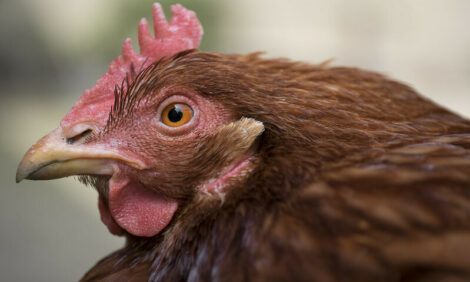



Asia needs $100 mln to fight bird flu - U.N. experts
ASIA - Asia needs about $100 million in the next three years to fight avian flu as the virus looks set to stay, but only about a third of that has been pledged, health and livestock experts said.
They said more money was needed to help chronically-infected Vietnam, turn Chinese farmers away from unauthorised anti-viral drugs and vaccinate ducks that were proving to be hardy carriers of the deadly H5N1 bird flu strain.
"The threat of avian influenza is ever present in Asia, contrary to some media reports that the risk of a pandemic is receding," Shigeru Omi, the World Health Organisation's (WHO's) regional director for Western Pacific, said.
"The H5N1 has so far resisted all attempts to dislodge it from the environment, the number of infections are rising and the virus remains unpredictable," he told reporters.
Officials from the WHO, the Food and Agriculture (FAO) and World Organisation for Animal Health (OIE) began a two-day meeting in the Malaysian capital on Monday to find ways to fight the virus at the point of interaction between humans and animals.
FAO chief Joseph Domenech estimated that Asia needed about $100 million between now and 2008 to contain bird flu but donors such as the United States, European Union and Australia have only pledged a total of less than $30 million.
He said E.U. members had committed a further 50 million Euros, but for between 2007 and 2011.
"We are talking to them to see how we can bring additional funds in immediately, particularly to Vietnam," Domenech said. "This is an international crisis, there is a lot more investment needed and donor governments are not doing enough."
Nineteen people have died in Vietnam from bird flu and a total of 60 have been infected since the virus returned in December. For the whole of last year, there were only 20 deaths and 27 infections in that Southeast Asian country.
"Vietnam is now chronically infested," WHO's Omi told Monday's meeting, adding that neighbouring Cambodia, which had no human infections until December, had reported four since and all the cases had been fatal.
He said while hundreds of thousands of poultry cullings were going on in the region, the H5N1 had killed an additional 6,000 migratory birds in China and two cases of a new birdflu strain, H5N2, had been detected in eastern Japan.
"There is no doubt that we are in a frightening situation, but I do not believe we are powerless," he said. "We still a chance to make our mark on history by trying to stop this virus."
That included getting more information on Chinese farmers' use of the amantadine anti-viral drug that could build immunity in affected poultry, passing the disease on to humans who consumed their meat.
The other major task was to vaccinate ducks, which when compared to chicken, do not fall sick when infected with the H5N1 but shed the virus in water.
In Hong Kong, a top influenza expert warned that birds infected with birdflu from Asia could come into contact with other flock crossing into Europe and elsewhere.
"I think Europeans will have to be aware of the possibility," Robert Webster, chair of the virology division at St Jude Children's Research Hospital in the United States, told reporters after a medical lecture in Hong Kong.
He said bar-headed geese headed to Australia, New Zealand, India could overlap with the migration range of other birds going through to Israel and central Europe.
"The range of these birds is quite enormous," he said. "Will most of the birds die in the Qinghai Lake, or will some species like the wild duck carry it in a benign form? If they do, that's big trouble."
Source: Reuters - 4th July 2005








